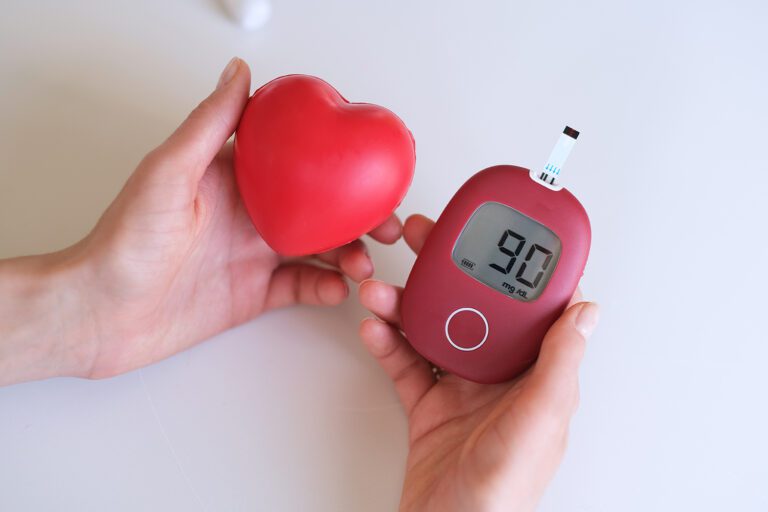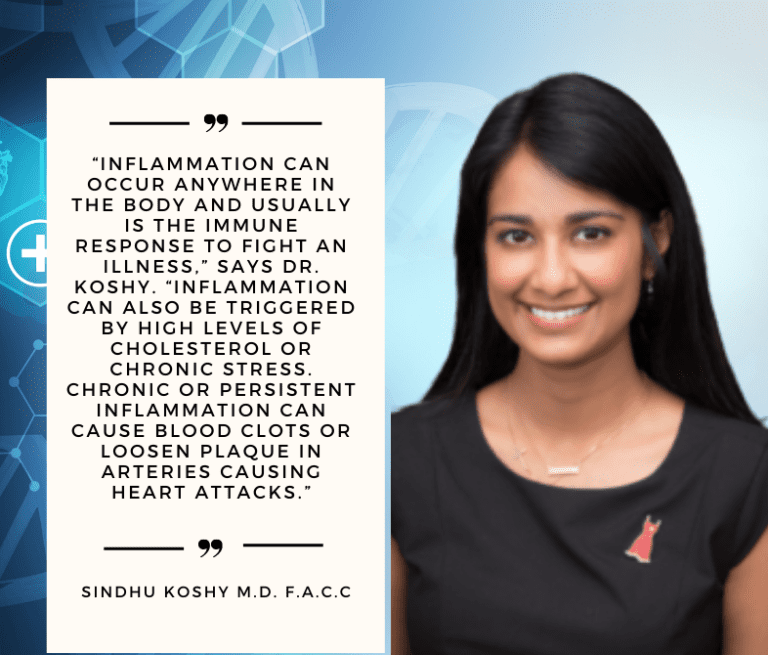There are multiple alarms and risk factors, which indicate a visit to the doctor, these are the signs and symptoms characteristic of the various diseases. The term “heart disease” is often used interchangeably with the term “cardiovascular disease.”
“Cardiovascular disease” refers to diseases that involve a narrowing or blockage of blood vessels that can cause a heart attack, chest pain or angina. While “heart disease” are complications in the muscles, valves or heart rate.

Heart Disease Symptoms
Symptoms of cardiovascular disease in the blood vessels (atherosclerotic disease)
Symptoms may include the following:
- Chest pain, chest tightness, chest pressure and discomfort in the area of the epigastrium. In the case of diabetic patients the pain may be absent.
- Difficulty breathing.
- Pain, numbness, weakness and cold sensation in the left arm.
- Pain in the neck, jaw, throat, upper abdomen or back.
Cardiovascular disease can be detected in a timely manner, with periodic evaluations.
Symptoms of heart disease caused by abnormal beats (cardiac arrhythmias).
Heart arrhythmia is an abnormal heartbeat. It is possible that the heart beats too fast, too slowly or irregularly. Symptoms of arrhythmia include the following:
- Feeling of flutter in the chest or palpitations.
- Fast heartbeat (tachycardia).
- Slow heartbeat (bradycardia).
- Chest pain or discomfort.
- Difficulty breathing.
- Stun.
- Dizziness.
- Fainting (syncope) or feeling faint.
Symptoms of heart disease caused by heart defects.
Serious congenital heart defects, which are defects with which you are born, are usually evident shortly after birth. Symptoms of heart defect in children may include the following:
- Pale gray or blue skin color (cyanosis).
- Swelling in the legs, abdomen or area around the eyes.
- In an infant, difficulty breathing during breastfeeding, which causes little weight gain.
Less serious congenital heart defects are often not diagnosed until later in childhood or during adulthood. Signs and symptoms of congenital heart defects that usually do not immediately endanger life include the following:
- Having trouble breathing shortly during exercise or physical activity.
- Get tired easily during exercise or physical activity.
- Swelling of the hands, ankles or feet.
The symptoms of heart disease are caused by weakness of the heart muscle (dilated cardiomyopathy).
In the early stages of cardiomyopathy, you may not have symptoms. As the disease worsens, symptoms may include the following:
- Shortness of breath when you strain or rest.
- Swelling in the legs, ankles and feet.
- Tiredness.
- Irregular beats that feel fast, strong or like flutters.
- Dizziness, lightheadedness and fainting.
Symptoms of heart disease caused by heart infections.
Endocarditis is an infection that affects the inner membrane that separates the chambers and valves of the heart (endocardium). Symptoms of heart infection include the following:
- Fever
- Difficulty breathing
- Weakness or fatigue
- Swelling in the legs or abdomen
- Changes in heart rate
- Dry or persistent cough
- Rash or unusual spots
Symptoms of heart disease caused by pathologies in the heart valves.
The heart has four valves: aortic, mitral, pulmonary and tricuspid, which open and close to direct the flow of blood through the heart. A variety of diseases can damage the valves and can cause narrowing (stenosis), filtration (regurgitation or insufficiency) or inadequate closure (prolapse).
Depending on which valve is not functioning properly, the symptoms of valvulopathy usually include the following:
- Tiredness.
- Difficulty breathing.
- Irregular heart rhythm.
- Swollen feet or ankles.
- Chest pain.
- Fainting (syncope).
Risk factor’s
Risk factors for presenting a heart disease include the following:
- Age. Aging increases the risk of arteries becoming damaged and narrowing, and of the weakening or thickening of the heart muscle.
- Sex In general, men are at greater risk of heart disease. However, the risk for women increases after menopause.
- Family background. Family history of heart disease increases your risk of coronary artery disease, especially if one of the parents developed it at an early age (before age 55 for a male relative, such as your brother or father, and before 65 for a family woman, like your mother or sister).
- Smoke. Nicotine contracts blood vessels, and carbon monoxide can damage its inner lining, which makes them more prone to atherosclerosis. Heart attacks are more frequent in smokers than in non-smokers.
- Some chemotherapy and radiation therapy drugs for cancer. The risk of cardiovascular disease may increase with some chemotherapy drugs and radiation therapies.
- Bad nutrition. A diet high in fat, salt, sugar and cholesterol can contribute to heart disease.
- High blood pressure. Uncontrolled high blood pressure can cause hardening and thickening of the arteries, which narrows the vessels through which blood circulates.
- High blood cholesterol levels. High blood cholesterol levels may increase the risk of plaque formation and atherosclerosis.
- Diabetes. Diabetes increases the risk of heart disease. Both conditions share similar risk factors, such as obesity and high blood pressure.
- Obesity. Excess weight usually worsens other risk factors.
- Lack of physical activity. Lack of exercise is also associated with many forms of heart disease and with some of its other risk factors.
- Stress. Untreated stress can damage arteries and worsen other risk factors for heart disease.
- History of rheumatic fever or Chagas disease.
If you suffer from any of these symptoms and live with any of these risk factors, it is appropriate to visit the doctor.
What is a heart murmur?
The human heartbeat is usually stable: lup-dub, lup-dub. But, in some people, blood makes an additional sound when it goes through the heart. That sound is called “breath.”
Doctors hear heart murmurs as a kind of whistle or whisper between consecutive heartbeats. These sounds are caused by blood when it flows through the heart.
What happens in a heart murmur?
Depending on the age of the person, the heart beats between 60 and 120 times per minute. In fact, each heartbeat consists of two different sounds. The heart makes “lup” when the valves that control the passage of blood from the upper to the lower cavities are closed. And then, when the valves that control the blood flow from the heart are closed, the “dub” comes .
A heart murmur is an extra sound that is heard apart from the “lup-dub”. Many times, those sounds are only the result of normal blood flow through a normal heart. Other times, a murmur can be a sign of a heart problem.
How are heart murmurs diagnosed?
Doctors listen to the heart auscultating with a stethoscope in different parts of the chest.
Heart murmurs are classified on a scale of 1 to 6, depending on how loud they are heard. Grade 1 is very soft, you can barely hear it, while grade 6 sounds very loud.
What causes heart murmurs?
Functional heart murmurs
A functional murmur can occur when blood flows faster than normal to the heart. Conditions that can cause rapid blood flow to the heart, and that cause a functional heart murmur, are as follows:
- Physical activity or exercise.
- Pregnancy
- Fever.
- Not having enough healthy red blood cells that carry adequate oxygen to body tissues (anemia).
- An excessive amount of thyroid hormone in the body (hyperthyroidism).
- Phases of accelerated growth, such as adolescence.
Functional heart murmurs may disappear over time or may last a lifetime without ever causing other health problems.
Abnormal heart murmurs.
The most common cause of abnormal murmurs in children is when babies are born with structural heart problems (congenital heart defects).
The frequent congenital defects that cause heart murmurs are the following:
- Holes in the heart or cardiac leads. Known as “interatrial or interventricular communication,” the holes in the heart may or may not be severe, depending on their size and location.
- Cardiac shunts occur when there is an abnormal blood flow between the cardiac cavities or blood vessels, which can cause a heart murmur.
- Heart valve abnormalities. Congenital heart valve abnormalities are present at birth, but sometimes they are not discovered until much later. Some examples are valves that do not allow too much blood to flow through them (stenosis) or those that do not close properly and have leaks (valvular insufficiency).
- Other causes of an abnormal heart murmur are infections and conditions that damage the structures of the heart, and are more frequent in older children or adults. For example:
- Valve calcification. Hardening or thickening of the valves, such as in mitral stenosis or in aortic valve stenosis, can occur as you get older. The valves can narrow and make it difficult for blood to flow to the heart, which causes murmurs.
- Endocarditis. Typically, this infection of the lining of the heart and valves occurs when bacteria or other germs from another part of the body, such as the mouth, spread through the bloodstream and lodge in the heart.
- If left untreated, endocarditis can damage or destroy the heart valves. Often, this condition occurs in people who already had heart valve abnormalities.
- Rheumatic fever. It is a serious condition that can occur when you do not receive complete or immediate treatment for strep throat infection. It can affect the heart valves permanently and impede normal blood flow through the heart.




